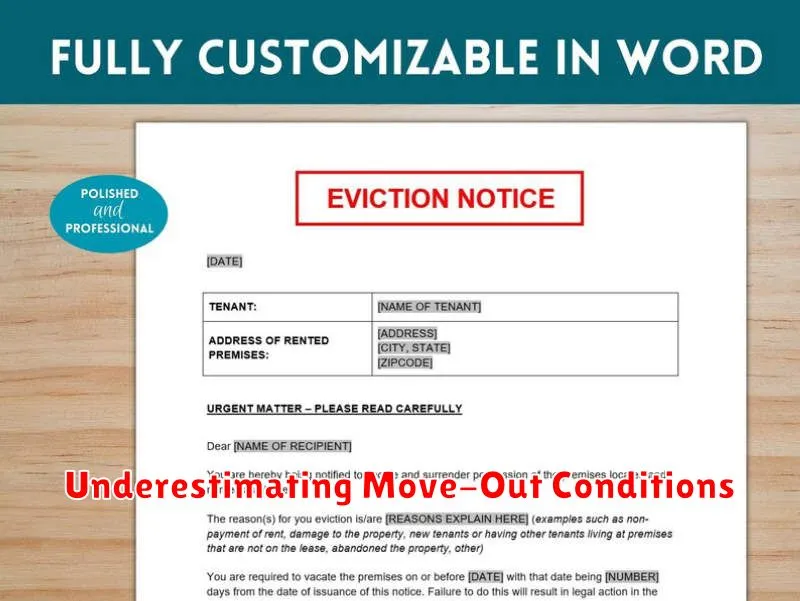Renting a house can be an exciting new chapter, but it’s crucial to avoid common pitfalls that can turn your dream home into a nightmare. From overlooking crucial details in the lease agreement to neglecting a thorough property inspection, many renters make avoidable mistakes that lead to financial and emotional stress. This article outlines the top mistakes to avoid when renting a house, providing you with the knowledge to navigate the rental process confidently and secure the best possible living situation. Understanding these common errors will help you protect your rights and make informed decisions, ensuring a smooth and positive rental experience. We’ll delve into the importance of carefully reviewing the lease, understanding your responsibilities as a tenant, and conducting a comprehensive inspection before signing on the dotted line.
Whether you’re a first-time renter or a seasoned tenant, it’s easy to fall prey to these common traps. From misjudging your budget and overspending to neglecting to research the neighborhood and landlord, these errors can have significant consequences. This guide will cover everything from understanding your rights as a renter to avoiding scams and ensuring you find a rental that fits your needs and lifestyle. By avoiding these top mistakes, you can secure a comfortable, safe, and affordable rental and enjoy a stress-free tenancy. We’ll empower you with the information you need to negotiate effectively, ask the right questions, and ultimately, make the best decision for your future.
Not Reading the Lease Thoroughly
One of the most critical mistakes renters make is not thoroughly reading their lease agreement before signing. A lease is a legally binding contract outlining the terms of your tenancy, including your rights and responsibilities. Failing to understand these terms can lead to unexpected costs, disputes with your landlord, or even eviction. It’s essential to scrutinize every clause, including details about rent increases, pet policies, maintenance responsibilities, and lease duration. Don’t hesitate to ask for clarification on anything you don’t understand before signing.
Key areas to pay close attention to include the length of the lease term, the amount of the security deposit, and procedures for requesting maintenance. Understanding these crucial details will protect you from potential issues down the road. Look for any clauses that seem unusual or unfair and discuss them with your landlord. If necessary, consult with a legal professional to ensure you fully comprehend the agreement’s implications.
By taking the time to carefully review the lease, you are protecting yourself and ensuring a smoother tenancy. This proactive approach can prevent future conflicts and help foster a positive landlord-tenant relationship.
Skipping Property Inspections
Waiving a property inspection might seem tempting to gain a competitive edge in a hot real estate market, but it’s a risky move. Inspections identify potential problems, from minor repairs to significant structural issues. Without this crucial information, buyers could face unexpected and potentially costly repairs after closing. Understanding the full scope of a property’s condition empowers buyers to make informed decisions, negotiate repairs, or even reconsider the purchase altogether.
While some buyers might skip inspections to expedite the closing process, the long-term financial implications can be substantial. Unforeseen issues like faulty wiring, plumbing problems, or foundation damage can quickly escalate into major expenses. The cost of an inspection is a small price to pay compared to the potential cost of addressing significant problems later. A professional inspection provides valuable insights, protects buyers from unexpected burdens, and ensures a smoother transition into homeownership.
Ultimately, the decision of whether to conduct a property inspection rests with the buyer. However, it’s strongly recommended to prioritize an inspection regardless of market conditions. The peace of mind gained from understanding the true condition of a property is invaluable. This knowledge allows buyers to make informed decisions, negotiate effectively, and avoid potentially costly surprises down the road.
Ignoring the Neighborhood Condition

Ignoring the neighborhood condition in algorithms, particularly those related to searching or optimization, can lead to suboptimal results. The neighborhood condition refers to the concept that solutions close to an existing solution in the search space are likely to have similar objective function values. Ignoring this principle can cause algorithms to miss potentially better solutions by focusing on areas of the search space far removed from known good solutions. This can be especially problematic in complex, high-dimensional search spaces where the global optimum might be surrounded by regions of lower quality solutions.
For example, in local search algorithms like hill climbing, the algorithm iteratively moves from the current solution to a neighboring solution with a better objective function value. If the algorithm doesn’t consider the neighborhood effectively, it might get stuck in a local optimum, a point that is optimal within its immediate vicinity but not globally optimal. Properly defining and exploring the neighborhood is crucial for escaping local optima and finding globally better solutions. This often involves carefully tuning parameters that control the size and shape of the neighborhood.
Failure to consider the neighborhood can also lead to increased computational cost. By randomly jumping across the search space, the algorithm might waste time exploring areas unlikely to yield good solutions. Focusing the search on promising neighborhoods allows for a more efficient exploration of the search space and a faster convergence towards optimal solutions. This is particularly important for problems with large search spaces or expensive objective function evaluations.
Overlooking Utility Costs
Many individuals and businesses frequently underestimate the significant impact of utility costs on their overall budgets. Failing to account for expenses such as electricity, water, gas, and waste disposal can lead to financial strain and hinder long-term planning. Accurately forecasting and managing these costs is crucial for maintaining financial stability and maximizing profitability.
Several factors contribute to overlooking utility expenses. These include fluctuating energy prices, inefficient usage habits, and outdated infrastructure. Additionally, a lack of awareness regarding consumption patterns and available conservation measures further exacerbates the issue. Neglecting to address these contributing factors can result in unnecessarily high utility bills and diminished financial resources.
Taking proactive steps to manage utility costs is essential. Conducting regular energy audits, implementing energy-efficient practices, and exploring renewable energy options can significantly reduce expenses. Moreover, staying informed about rate changes and utilizing budgeting tools can help individuals and businesses gain better control over their utility consumption and overall financial well-being.
Assuming All Maintenance Is Included
When a property listing boasts that “all maintenance is included,” it’s essential to understand precisely what that entails. While it generally implies that routine upkeep like landscaping, snow removal, and common area cleaning are covered, the specifics can vary significantly. Thoroughly review the lease or contract to determine the exact services encompassed and any potential limitations. For instance, while exterior repairs might be covered, interior maintenance like appliance replacement or plumbing issues could still be your responsibility. Don’t hesitate to ask for clarification from the landlord or property manager to avoid future surprises and disagreements.
In addition to understanding what is covered, consider what is explicitly excluded. Some seemingly “all-inclusive” agreements might exclude certain types of repairs or place limits on coverage. This could include specific systems like HVAC, or limitations on repair costs. For example, the landlord might cover repairs up to a certain dollar amount, leaving you responsible for any excess. Pay close attention to these details, as they can significantly impact your long-term expenses.
Finally, understand the process for requesting maintenance. Even if a service is covered, a clear procedure needs to be followed to ensure timely and effective action. This often involves submitting a formal request through a designated portal or contacting the property management directly. Knowing the process beforehand can prevent delays and frustrations if a maintenance issue arises.
Not Documenting Pre-Existing Damage
One of the most common and costly mistakes when renting a property is failing to document pre-existing damage. Before moving in, thoroughly inspect the entire property, noting any existing flaws, no matter how small. This includes scratches, dents, stains, cracks, and any other imperfections. Take clear photos or videos as evidence.
This documentation protects you from being held responsible for damages you didn’t cause. Without proof, you could face deductions from your security deposit or even be charged for repairs. Clear documentation provides a baseline condition of the property and prevents disputes with the landlord later on.
Share your documentation with your landlord, ideally in writing, to acknowledge the pre-existing conditions. This creates a shared understanding and helps ensure a smooth move-out process. Keep a copy of the documentation for your records throughout the duration of your tenancy.
Failing to Get Everything in Writing
One of the most common mistakes in both personal and professional dealings is the failure to document agreements in writing. While a handshake or verbal agreement might feel sufficient in the moment, memories fade, circumstances change, and misunderstandings arise. Written contracts provide a concrete reference point for all parties involved, clearly outlining expectations and obligations. This protects everyone involved and can prevent costly disputes down the line.
Without a written agreement, proving the terms of a deal can be incredibly difficult. He said/she said situations rarely resolve favorably, and the lack of tangible evidence can make it impossible to enforce an agreement. This can lead to financial losses, damaged relationships, and wasted time and resources spent trying to reconstruct verbal understandings. Formalizing agreements in writing, no matter how small the deal might seem, is a crucial step in protecting your interests.
Getting everything in writing doesn’t have to be complicated. A simple email exchange outlining key terms can often suffice, especially for less complex agreements. For more significant deals, consulting with a legal professional is highly recommended to ensure the contract is comprehensive and legally sound. Prioritizing written documentation demonstrates professionalism, builds trust, and provides a solid foundation for a successful outcome.
Missing Hidden Fees in Contracts
Contracts are legally binding agreements, and it’s crucial to understand every detail before signing. One common pitfall is overlooking hidden fees. These fees can be disguised within complex language or buried deep within the document. Failing to identify them can lead to unexpected costs and financial strain. Carefully review the entire contract, paying special attention to sections related to payments, charges, and any additional expenses. Look for terms like “administrative fees,” “processing fees,” or “service charges.” If anything is unclear, don’t hesitate to ask for clarification.
Comparing similar contracts can help highlight potential hidden fees. By examining competing offers, you can gain a better understanding of standard pricing practices and identify any unusually high or unexplained charges. Requesting an itemized breakdown of all costs associated with the contract can also be invaluable. This will force the other party to disclose all fees upfront, making it easier to spot any hidden expenses. Remember, being proactive and informed is the best defense against hidden fees.
If you suspect hidden fees in a contract, seek professional advice. An attorney specializing in contract law can thoroughly review the document and identify any potentially problematic clauses. They can also assist in negotiating with the other party to remove or reduce these fees. Protecting your financial interests is paramount, and seeking legal counsel can provide the necessary guidance and support.
Underestimating Move-Out Conditions

One of the most common mistakes renters make is underestimating the importance of move-out conditions. Many assume a quick clean is sufficient, but landlords often have specific requirements outlined in the lease agreement. Failing to meet these conditions, such as thorough cleaning, minor repairs, or proper disposal of trash, can lead to deduction from the security deposit. It’s crucial to review the lease thoroughly and understand the expectations to avoid unexpected costs.
Another common oversight is the documentation of the property’s condition upon move-in and move-out. Taking photos and videos of any existing damage or imperfections when you first move in can protect you from being held responsible for pre-existing issues. Similarly, documenting the condition of the property after cleaning and repairs upon move-out serves as proof of your compliance with the lease agreement. This documentation can be invaluable in resolving any disputes regarding the security deposit.
Finally, communication with the landlord is essential throughout the move-out process. Scheduling a pre-move-out inspection allows the landlord to identify any areas needing attention and provides an opportunity to discuss expectations. Open communication can prevent misunderstandings and ensure a smooth transition, ultimately maximizing the chances of receiving a full security deposit refund.
Not Understanding Rent Increase Policies
Rent increases can be a source of stress for tenants, especially if they are unexpected or seem unreasonable. It’s crucial to understand your local laws and the terms of your lease agreement regarding rent increases. Landlords are often required to provide advanced notice, typically 30 to 60 days, before implementing a rent increase. This notice period allows tenants time to adjust their budgets or explore other housing options if necessary. Furthermore, some jurisdictions have limits on the percentage a landlord can increase rent within a given timeframe. Being aware of these regulations can protect you from unlawful rent hikes.
Your lease agreement should also outline the landlord’s policy on rent increases. Some leases may stipulate fixed-term rent, meaning the rent cannot be increased during the lease period. Other leases may allow for increases under certain conditions, such as at the end of the lease term or with proper notice. Carefully review your lease before signing to fully understand the potential for rent increases and avoid future surprises. Don’t hesitate to ask your landlord for clarification on any confusing clauses related to rent increases.
If you believe a rent increase is unlawful or violates the terms of your lease, document everything. Keep records of rent payment receipts, the rent increase notice, and any communication with your landlord. You may want to contact your local tenant rights organization or a legal professional for guidance on how to proceed. Understanding your rights and responsibilities as a tenant is essential for navigating rent increases effectively.

